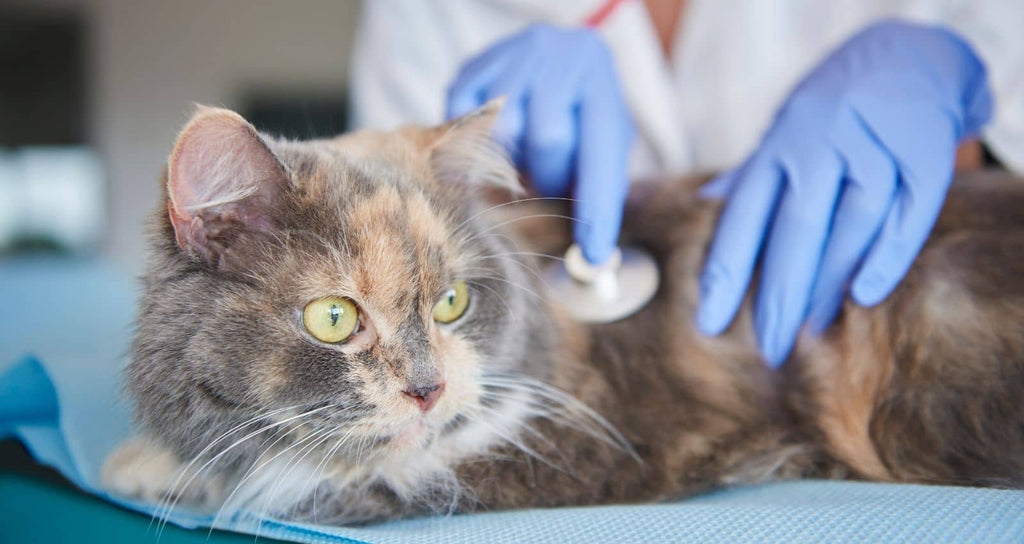Some cats are so convinced that bleach smells like cat urine that they may start urinating on those areas, so keep that in mind the next time you consider breaking out the bleach!
Many felines seem to have a penchant for bleach. The chlorine in bleach (as well as the ammonia in other cleaning products) can smell similar to the biochemical odor of feline pee.
Felines can smell things that we can't due to their highly sensitive olfactory senses.

You should constantly avoid allowing your felines access to areas of your home where you use bleach products.
Bleach decontaminates surfaces because its superpower is to break down proteins found in viruses, germs and fungi.
However, bleach is corrosive to animals. It causes ulcerations of the eyes, skin, paw pads, lining of the respiratory tract, mouth and intestine.
The symptoms of direct exposure to bleach are therefore:
- drooling
- difficulty/pain swallowing
- vomiting
- stomach aches
- eye discomfort (red, watery eyes, squinting/closing of the eyes, rubbing of the eyes).

Keeping Felines Safe When Using Bleach in Your Home
- Always keep felines away from the source of bleach and surfaces to be cleaned
- Keep toilet lids closed (some cats tend to drink from the toilet bowl!).
- Do not leave bleach lying around in mop containers or sinks so that curious cats can examine it, smell it, fiddle with it, lick it or get it in their face.
- Quickly clean up any spills by rinsing with plenty of water and cleaning up.
- Never mix bleach with other chemical cleaning products, as this can be dangerous for your feline

What is the safest bleach dilution with a feline in the house?
Household bleach (5-6% hypochlorite) should preferably be used at a dilution of 1:32 if a cat is in the house - this concentration is effective for many daily tasks if left in contact for 10-15 minutes. Stronger, it risks being very dangerous for humans and cats.
The safest solution is to exclude cats (and any other pets) from areas where chemicals are used, rinse off any residue, and allow the area to dry completely afterwards.
Also, avoid using very hot water to dilute your bleach. By using cold water, you will prevent the bleach from vaporizing and being breathed in by you or your feline.
Add bleach to water (not water to bleach) to prevent splashing and spraying of concentrated bleach outside the designated area, onto surfaces, eyes/faces, clothes and especially on curious felines!
What should I do if my feline came into contact with bleach?
-
Carefully examine his fur, paws and mouth for any traces of bleach and wash him immediately with soap and water (no antibacterial liquid soap or any soap containing essential oils - also dangerous for cats! )
-
Wash any areas of your feline's fur or paws that may be polluted several times .

- It is best to dilute any toxin possibly consumed by using water for your cat or wet food combined with water, but do not induce vomiting as the chemical will only cause further damage as it comes back up.
- Likewise, we advise you to avoid rubbing an area stained by your pet's urine with a bleach-based product . Your cat will systematically urinate there again to mark its space. On the other hand, do not hesitate to clean your cat's litter box with it, making sure to rinse it well, which will encourage it to be clean.

- This is a potential emergency situation and the main thing is to start treatment immediately. So call your veterinarian immediately for additional suggestions, even if your cat shows no signs and even if you are not sure whether he came into direct contact with the product. It's always best to be careful.
Are you wondering why our felines are so fond of the smell of bleach and why it makes them want to mark that area?
Felines, like other animals, are particularly aware of the smell of bleach, it makes them want to do their business in order to cover the smell, but why? Well, it would come from the chemical structure of the product.
The acidity level present in this liquid is almost similar to that of urine. We think that felines, with their particularly developed sense of smell, would mistake this smell for urine, so they would try to cover this smell by marking it.

Can bleach be dangerous for our felines?
Yes, bleach is a product that can be dangerous for our pets and our felines in particular, especially if it is consumed.
We strongly advise against cleaning with bleach.
In addition, you should know that there is a wide range of decontaminating products and above all much less dangerous and toxic for our animals.
Practical information: If your feline consumes bleach, it is necessary to contact your veterinarian and/or the animal poison control center near you.
In conclusion, keep your feline away when using household products containing bleach or use a non-bleach product, such as white vinegar, to clean your home and guarantee the well-being of your animal.